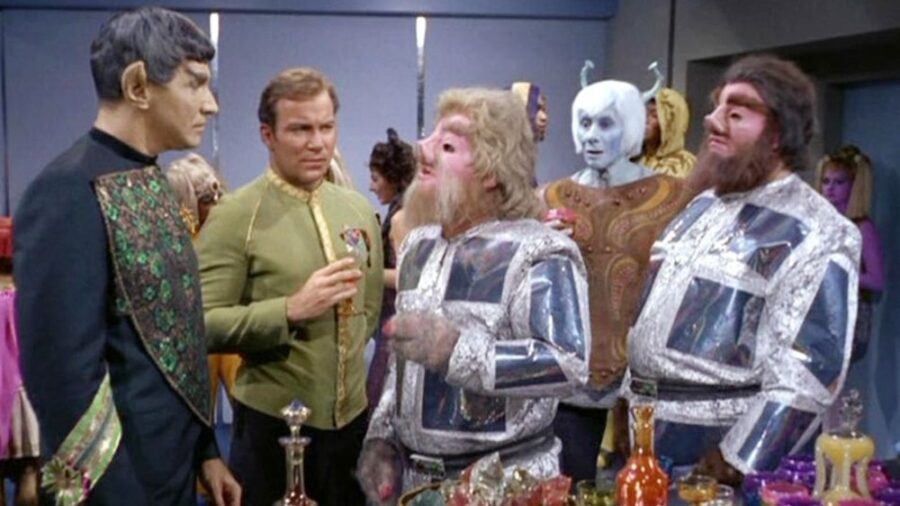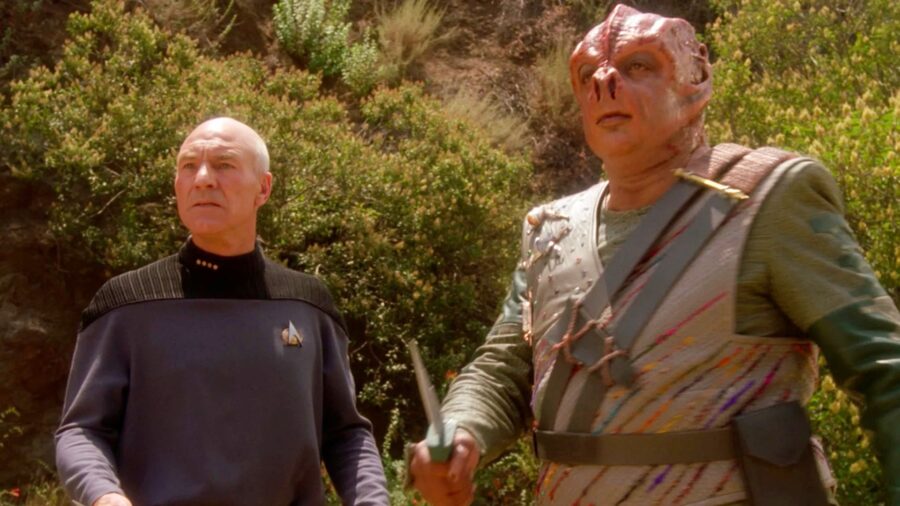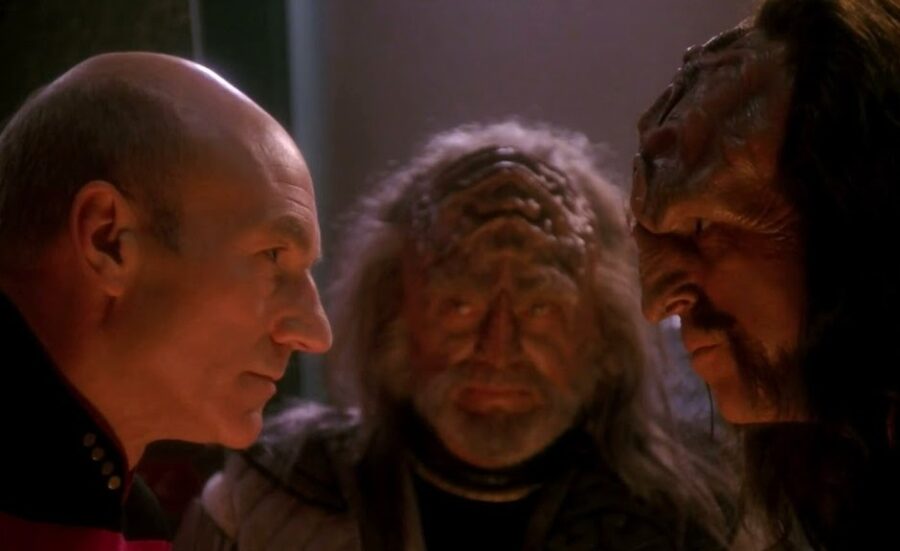How Universal Translators Work In Star Trek

One of the most consistent features of Star Trek is that we constantly see characters speaking English to one another, regardless of where they were originally born. Even exotic aliens speak in perfect English when they are onboard a ship or a space station in this Paramount franchise, and there’s a reason for that: the universal translator.
Humans and aliens are able to understand each other in Star Trek, because of the fictional invention of the Universal Translator.
Of course, Star Trek hasn’t always been perfectly consistent with this technology, so we’re here to explain, once and for all, exactly how the universal translator works.
Thanks to Star Trek: Enterprise, we know that the earliest versions of the universal translator work a bit like some of our modern translation technology. We see communications specialist and linguist Hoshi Sato wielding a handheld device that can decipher the languages used by others.

After the device receives enough language input, it can build a translation matrix (which is the real cornerstone of this technology) and display a text-based translation of what each party is saying.
The shows are generally written from Starfleet’s POV, so we are hearing everything in perfect English while the hypothetical Klingon would hear Riker’s words translated into his own language.
Since Star Trek: Enterprise took place about a century before The Original Series, its portrayal of the universal translator was very basic compared to what we see in other shows and movies.
For example, in Discovery, we see the use of handheld communicators that Captain Kirk would later rely on, and these devices had a much more advanced translation matrix that was capable of anticipating alien languages without them having to speak directly into the device.
More importantly, the devices could now verbally translate what was being said on the fly, so if two humanoid characters were speaking different languages, their words would be instantly translated while they spoke (the translator consistently has trouble translating non-humanoid languages, incidentally). At this point, its translation abilities are very nearly magical, so you just have to roll with it.
Star Trek: The Next Generation brought the franchise into the 24th century, and the universal translator was now conveniently built directly into the comm badges that all Starfleet crew members must wear. This is why everyone appears to speak English: if a Klingon or another alien beams over to the Enterprise, the universal translator will translate their native language into English for the benefit of characters like Commander Riker.

The shows are generally written from Starfleet’s POV, so we are hearing everything in perfect English while the hypothetical Klingon would hear Riker’s words translated into his own language.
Star Trek Translator Inconsistencies
While this explains the basics of how Star Trek uses the universal translator, there are still some funny inconsistencies across various shows and movies. For example, one memorable scene in Star Trek: The Undiscovered Country involves Uhura trying to bluff her way past a long-range Klingon patrol, and this involves her and several of the crew frantically flipping through paper books to help with translation.
Nichelle Nichols herself objected to this scene because it demeaned Uhura’s skills as a communications expert and seemingly overlooked the existence of the translator, so we’re willing to chalk this scene up as an anomaly.
Another aspect of the technology that Star Trek fans often debate over is that even though everything is being translated to English for the benefit of the characters, we still see characters like Captain Picard saying Klingon words and phrases that don’t get automatically translated from their original language.
While never confirmed by the show, my pet theory is that the translator is familiar enough with certain cultural words or phrases to understand when someone who doesn’t natively speak the language wants to say something with all the context and flavor of the original language.

For example, many people who don’t speak fluent French prefer to say that certain things have a certain “je ne sais quois” rather than using the much more boring English translation of “I don’t know what.” In Star Trek, it’s reasonable to assume that the universal translator knows that when someone like Picard says “Qapla” to Worf, he wants his alien security chief to hear it in the original Klingon rather than hearing the English translation of “success.”
As for why Picard is a French man speaking perfectly-accented English throughout the entire series, not even the universal translator can explain what the hell happened there.











